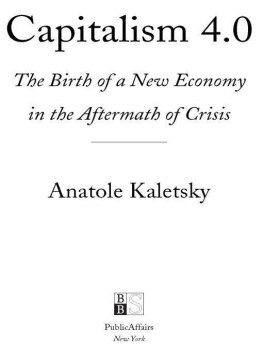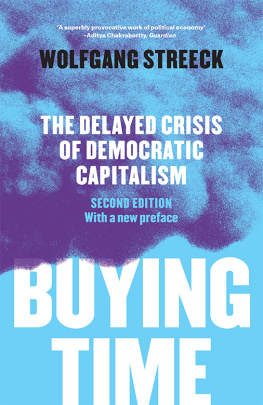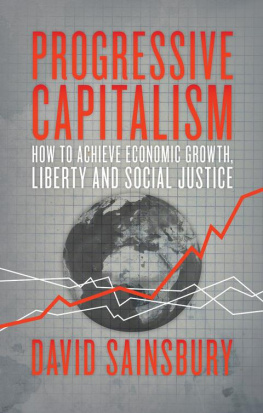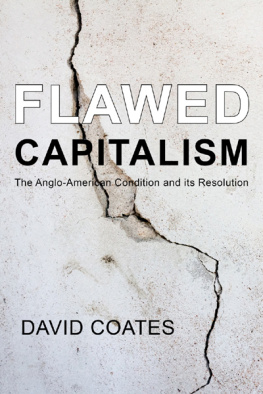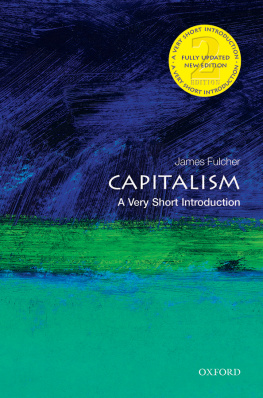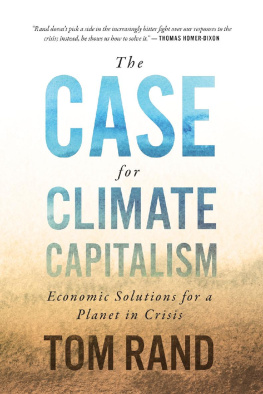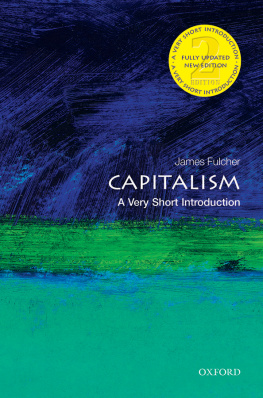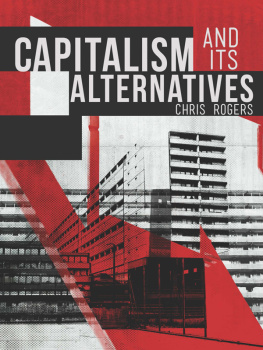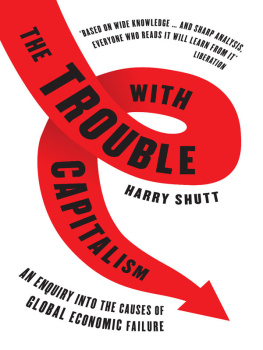Table of Contents

In memory of my late parents, Jacob and Esther Kaletsky, who experienced true calamities and crisesthe Russian Revolution, the two world wars, the Holocaust, the purges of Stalinbut whose joyful and indomitable spirits lived on.
Introduction
T HE WORLD DID NOT END. Despite all the forebodings of disaster in the 2007-09 financial crisis, the first decade of the twenty-first century passed rather uneventfully into the second. The riots, soup kitchens, and bankruptcies predicted by many of the worlds most respected economists did not materializeand no one any longer expects the global capitalist system to collapse, whatever that emotive word might mean.
Yet the capitalist systems survival does not mean that the precrisis faith in the wisdom of financial markets and the efficiency of free enterprise will ever again be what it was before the bankruptcy of Lehman Brothers on September 15, 2008. A return to decent economic growth and normal financial conditions is likely by the middle of 2010, but will this imply a return to business as usual for politicians, economists, and financiers? Although globalization will continue and many parts of the world will gradually regain their prosperity of the precrisis period, the traumatic effects of 2007-09 will not be quickly forgotten. And the economic costs will linger for decades in the debts squeezing taxpayers and government budgets, the disrupted lives of the jobless, and the vanished dreams of homeowners and investors around the world.
For what collapsed on September 15, 2008, was not just a bank or a financial system. What fell apart that day was an entire political philosophy and economic system, a way of thinking about and living in the world. The question now is what will replace the global capitalism that crumbled in the autumn of 2008.
The central argument of this book is that global capitalism will be replaced by nothing other than global capitalism. The traumatic events of 2007-09 will neither destroy nor diminish the fundamental human urges that have always powered the capitalist systemambition, initiative, individualism, the competitive spirit. These natural human qualities will instead be redirected and reenergized to create a new version of capitalism that will ultimately be even more successful and productive than the system it replaced.
To explain this process of renewal, and identify some of the most important features of the reinvigorated capitalist system, is the ambition of this book. This transformation will take many years to complete, but some of its consequences can already be discerned. With the benefit of even a years hindsight, it is clear that these consequences will be different from the nihilistic predictions from both ends of the political spectrum at the height of the crisis. On the Left, anticapitalist ideologues seemed honestly to believe that a few weeks of financial chaos could bring about the disintegration of a politico-economic system that had survived two hundred years of revolutions, depressions, and world wars. On the Right, free-market zealots insisted that private enterprise would be destroyed by government interventions that were clearly necessary to save the systemand many continue to believe that the crisis could have been resolved much better if governments had simply allowed financial institutions to collapse. A balanced reassessment of the crisis must challenge both left-wing hysteria and right-wing hubris.
Rather than blaming the meltdown of the global financial system on greedy bankers, incompetent regulators, gullible homeowners, or foolish Chinese bureaucrats, this book puts what happened into historical and ideological perspective. It reinterprets the crisis in the context of the economic reforms and geopolitical upheavals that have repeatedly transformed the nature of capitalism since the late eighteenth century, most recently in the Thatcher-Reagan revolution of 1979-89. The central argument is that capitalism has never been a static system that follows a fixed set of rules, characterized by a permanent division of responsibilities between private enterprise and governments. Contrary to the teachings of modern economic theory, no immutable laws govern the behavior of a capitalist economy. Instead, capitalism is an adaptive social system that mutates and evolves in response to a changing environment. When capitalism is seriously threatened by a systemic crisis, a new version emerges that is better suited to the changing environment and replaces the previously dominant form.
Once we recognize that capitalism is not a static set of institutions, but an evolutionary system that reinvents and reinvigorates itself through crises, we can see the events of 2007-09 in another light: as the catalyst for the fourth systemic transformation of capitalism, comparable to the transformations triggered by the crises of the 1970s, the crises of the 1930s, and the Napoleonic Wars of 1803-15. Hence the title of this book.
The first of these great transitionsthe period of social and economic upheaval that started with the political revolutions in America and France and the industrial revolution in Englandcreated the first era of modern capitalism, running roughly from the British victory over Napoleon in 1815 until the First World War. This long period of relative systemic stability and rising prosperity ended with the First World War, the Russian Revolution, and finally the Great Depression in the United States. These unprecedented political and economic traumas destroyed the classical laissezfaire capitalism of the nineteenth century and created a different version of the capitalist system, embracing Franklin Roosevelts New Deal, Lyndon Johnsons Great Society, and the British and European welfare states. Then, forty years after the Great Depression, another enormous economic crisisthe global inflation of the late 1960s and 1970sinspired the free-market revolution of Margaret Thatcher and Ronald Reagan, creating a third version of capitalism, clearly distinct from the previous two. Forty years after the great inflation of the late 1960s, the global economy was hit by another systemic crisis, in 2007-09. The argument of this book is that this crisis is creating a fourth version of the capitalist system, a new economy as different from the designs of Reagan and Thatcher as those were from the New Deal. Hence the birth of a new economy in the subtitle of this book.
The concept of capitalism as an evolutionary system, whose economic rules and political institutions are subject to profound change, may seem controversial and even subversive from the standpoint of precrisis thinking. The Thatcher-Reagan revolution of the early 1980s was widely proclaimed as a rediscovery of true capitalism after the cryptosocialist heresies and deviations of the Keynesian periodand this worldview is still held by most conservative politicians and business leaders. In the great scheme of things, however, the dominance of free-market fundamentalism from 1980 until 2009 was just one thirty-year phase in the long history of modern capitalisms development since the late eighteenth century. Viewing recent events in this historical perspective reveals the crisis and its consequences in a new light.
Many politicians and business leaders consider, for example, that any government interference with market forces is inimical to the free-market system. They oppose all such interventions on principle as the thin end of a socialist wedge. Given the long and triumphant history of capitalism before anyone had heard of Reagan and Thatcher, this is an absurdly narrow-minded view. The changing relationship between government and private enterprise, between political and economic forces, has been the clearest feature of capitalisms evolution from one phase to the nextfirst in the early nineteenth century, then in the 1930s, then in the 1970s, and again today. And after each of these evolutions, the capitalist system has emerged stronger than it was before. To understand the new politico-economic model emerging from the crisis, it helps to consider the changing relationships of governments and markets in these three previous phases.
Next page
